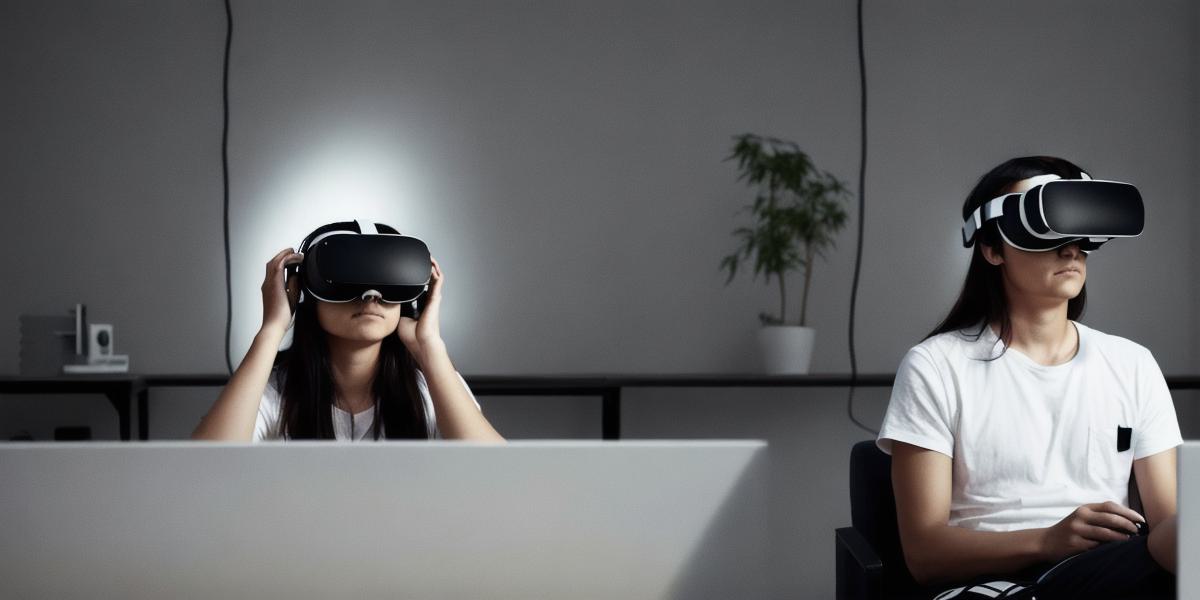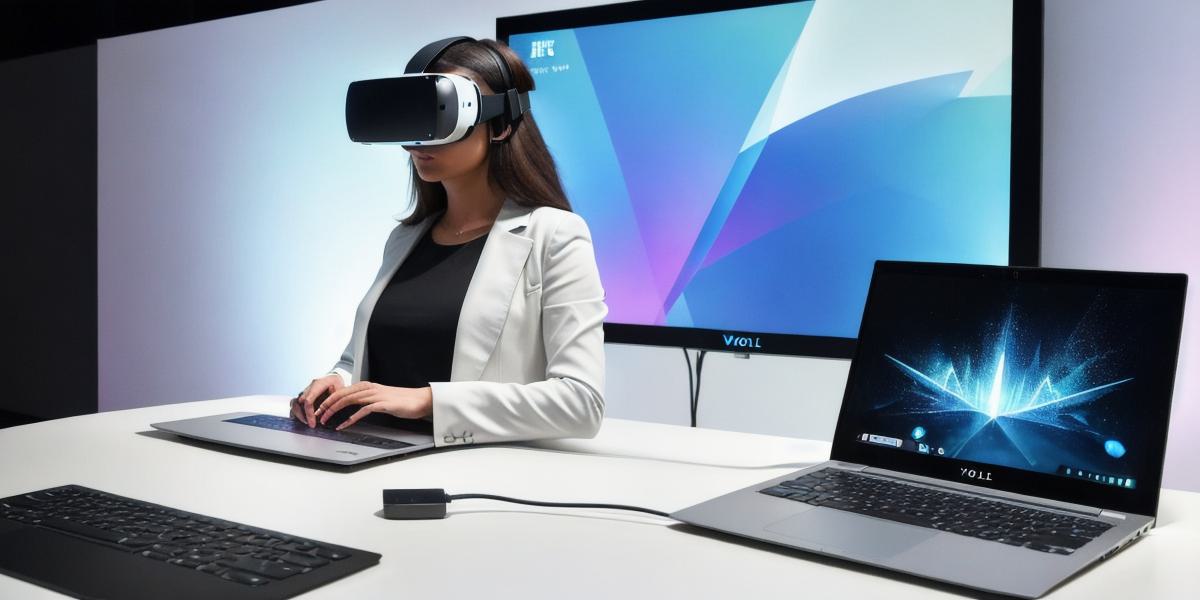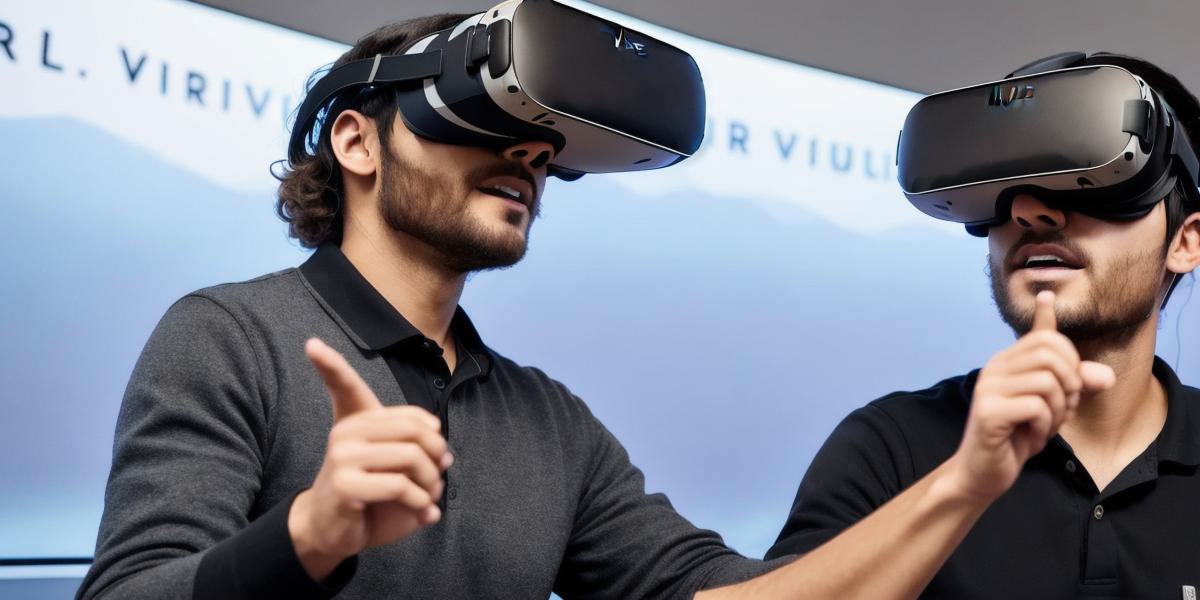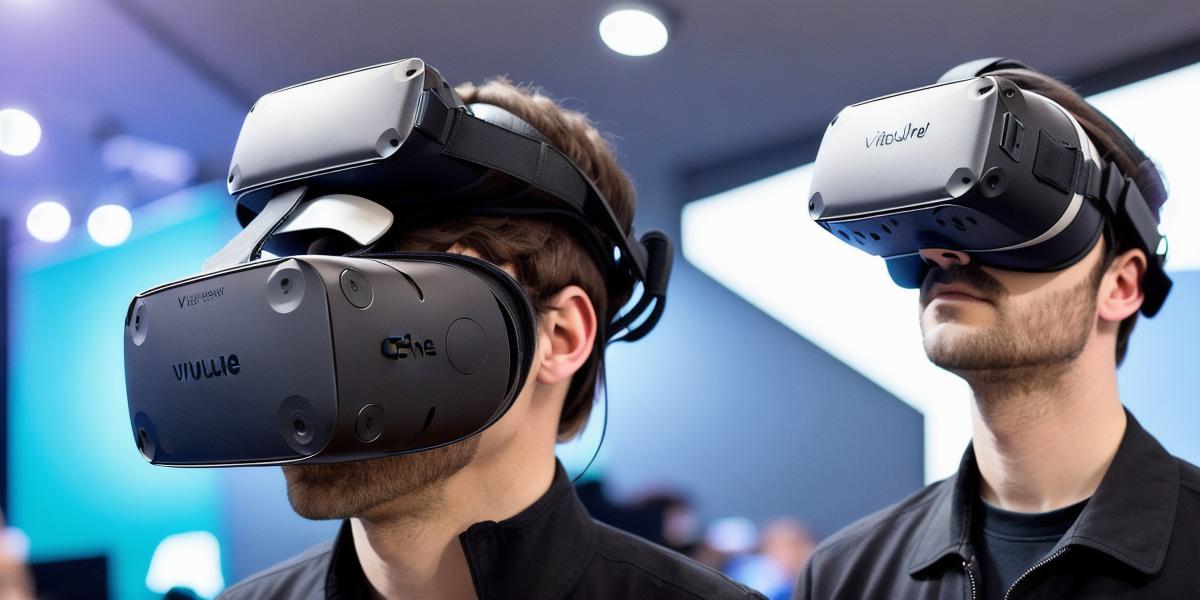As virtual reality (VR) technology continues to advance, more and more people are turning to this immersive experience as a way to escape the stresses of everyday life. However, there is growing concern that VR could be doing more harm than good. In this article, we will explore the potential negative effects of VR on our physical and mental health, as well as the impact it can have on social connections and overall well-being.
One of the most obvious risks associated with VR is motion sickness. When we immerse ourselves in a virtual environment, our brains have to work harder to process the sensory input coming from our eyes and ears. This can lead to feelings of nausea, dizziness, and headaches, especially for those who are prone to motion sickness in real life.
In addition to motion sickness, VR can also have a negative impact on our physical health. Spending long periods of time in a virtual environment can lead to a sedentary lifestyle, which can increase the risk of obesity, heart disease, and other chronic conditions. Furthermore, some VR experiences can involve physically strenuous activities, such as combat training or sports simulation, which can be dangerous for those who are not physically fit.
But the negative effects of VR don’t stop at physical health. There is also concern that VR can have a detrimental impact on our mental well-being. Some studies have found that spending too much time in a virtual environment can lead to feelings of isolation and disconnection from reality, which can exacerbate symptoms of depression and anxiety.
Furthermore, some experts worry that VR could be addictive, with users becoming increasingly reliant on the virtual world for escape and avoidance of real-life problems. This could lead to a loss of productivity, social skills, and overall quality of life.
Despite these concerns, it’s important to note that VR is not inherently bad for us. When used responsibly and in moderation, VR can be a fun and engaging way to explore new experiences and expand our imaginations. It can also be a powerful tool for therapy and rehabilitation, helping people with conditions such as PTSD, phobias, and chronic pain.
So, is VR bad for you? The answer is complex and depends on how it is used. As with any technology, it’s important to use VR in moderation and be mindful of the potential risks and benefits. With careful consideration and responsible use, VR can be a wonderful tool for enhancing our lives and experiences.
FAQs:
- Is motion sickness a common side effect of VR?
Yes, motion sickness is a common side effect of VR, especially for those who are prone to it in real life. - Can VR be addictive?
There is concern that VR could be addictive, with users becoming increasingly reliant on the virtual world for escape and avoidance of real-life problems. - Are there any potential physical health risks associated with VR?
Yes, spending long periods of time in a virtual environment can lead to a sedentary lifestyle, which can increase the risk of obesity, heart disease, and other chronic conditions. Some VR experiences can also involve physically strenuous activities, which can be dangerous for those who are not physically fit. - Can VR have a negative impact on mental well-being?
Yes, some studies have found that spending too much time in a virtual environment can lead to feelings of isolation and disconnection from reality, which can exacerbate symptoms of depression and anxiety.




